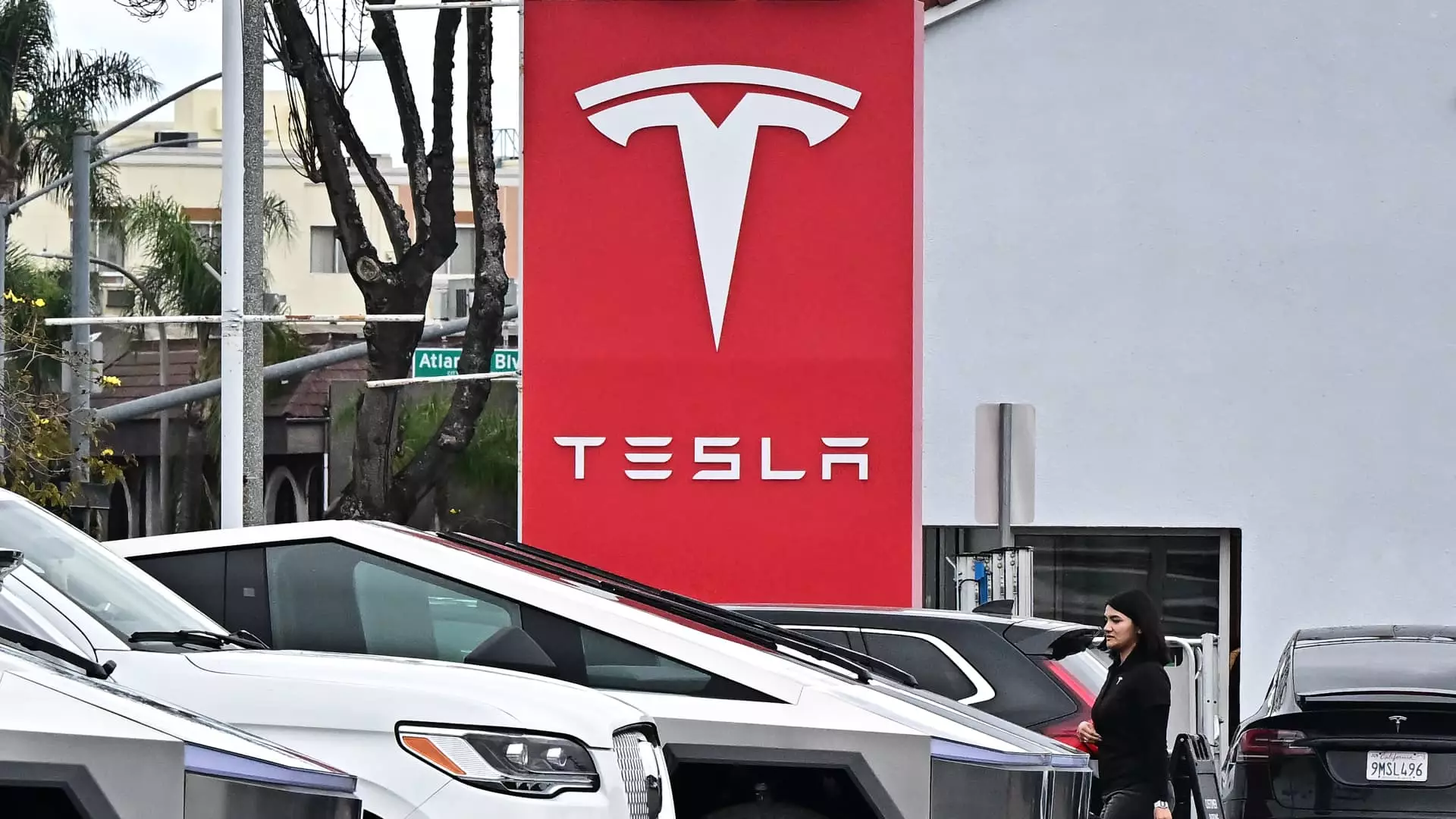The electric vehicle (EV) market, once a beacon of unbridled optimism and growth, is now facing a stark transition as geopolitical tensions escalate. Recent downgrades from major Wall Street analysts have sent shockwaves through the market, prompting a reconsideration of Tesla’s future prospects. With investors now bracing for a potential 30% downside, it is crucial to dissect the myriad of factors contributing to this dramatic shift in sentiment. Tesla, a company that once symbolized innovation and future-forward thinking, now finds itself teetering on the edge of a potential financial cliff, primarily due to forces beyond its control.
Analysts Divide on Tesla’s Viability
Three prominent financial institutions—Goldman Sachs, UBS, and Mizuho—have recently revised their price targets for Tesla, prompting a wave of concern among investors. UBS has slashed its target from $225 to $190, indicating a worrying 30% potential decline. Meanwhile, Goldman Sachs has lowered its expectations from $275 to $260, suggesting a meager 4% drop. Mizuho remains the most optimistic, reducing its price target from $430 to $375 but still reflecting a significant upside of 38%. This divide among analysts raises critical questions about Tesla’s performance and the broader automotive industry.
What stands out is the diminishing consensus on Tesla’s future earnings trajectory. UBS analyst Joseph Spak notes, “the whole trajectory of earnings for TSLA remains too high and could face negative revisions.” This points to a growing ambivalence regarding Tesla’s ability to maintain its competitive position amid shifting market dynamics. The waxing and waning of consumer demand, coupled with troubling geopolitical climates, have created an environment ripe for skepticism.
Trade Tensions and Economic Factors at Play
At the core of the bearish sentiments surrounding Tesla is the mounting pressure from international trade conflicts. Tariffs and economic headwinds from China directly threaten Tesla’s operations and profit margins, exposing the company to vulnerabilities it previously dodged. As auto demand weakens and consumer sentiment takes a dive, the company’s expansive plans for growth may hit unforeseen obstacles. The electric vehicle landscape is rapidly changing, with traditional automotive giants ramping up their EV divisions, potentially stealing market share from Tesla.
Elon Musk’s connection to the new administration adds another layer of complexity. While some view his industry insights as advantageous, others worry that political affiliations could cloud the brand’s image, alienating potential buyers concerned about the implications of his political actions. In this volatile environment where consumer trust and sentiment matter more than ever, Tesla’s brand is at risk of tarnishing, which could negatively impact sales moving forward.
AI and Technological Potential: A Double-Edged Sword
Despite the challenges ahead, some analysts remain cautiously optimistic. Goldman Sachs noted that while risks loom, Tesla’s long-term prospects, particularly in AI and advanced technologies, hint at potential growth avenues that could offset current weaknesses. However, this optimistic view is layered with an uncomfortable reality—advancements in technology can only buffer the impact of immediate external threats.
Competitors are already ramping up production and innovations, eager to take a slice of Tesla’s market share, especially in Europe and China. Mizuho’s Vijay Rakesh believes Tesla will maintain its position as a leader in the U.S. EV market, but the increasing competition could prove detrimental in the long run. Investors should be wary; if challenges continue to outpace growth that was once considered inevitable, profits could evaporate as quickly as they appeared.
The Investment Landscape: Managing Expectations
For investors, now is the time to tread carefully. As Tesla’s stock has plummeted 33% this year alone, many are left asking whether this drop is merely a correction or an indication of deeper issues within the company. Ambiguities surrounding governmental policies impacting EV incentives further complicate the future profitability of Tesla.
Holding onto Tesla stock could be likened to sailing in choppy waters; while occasional swells present promising upsides, the risks of capsizing are real and daunting. The notion that Tesla could soon succumb to financial pressures raises critical questions not just about this one company, but about the entire EV industry’s sustainability during turbulent economic times. With an uncertain future ahead, it is imperative for investors to remain astute, balancing hope and caution in an unfolding drama rife with unknowns.

